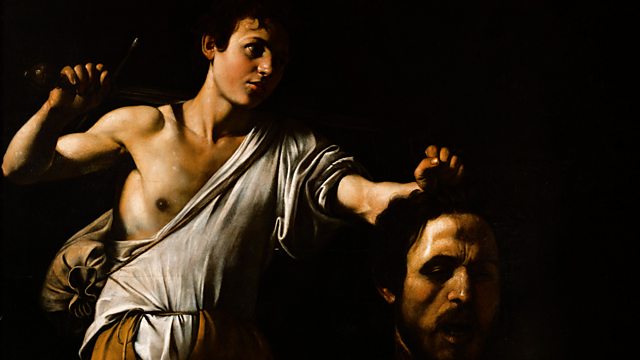
Reflections on Caravaggio
Prof Ben Quash of King's College, London, explores how the tempestuous and morally dubious Milanese artist Caravaggio came closer to God through his painting.
The Milanese painter, Michelangelo Merisi da Caravaggio has intrigued the modern imagination more than any other old master. Renowned in his own time for the innovative and shocking realism of his paintings, often celebrated nowadays for the tempestuous lifestyle which informed his work, he is remembered as the creator of art that influenced and inspired.
First broadcast 400 years after his death in July 1610, these portraits of the painter offer a series of personal responses to his work, life and legacy. Tonight's essay is by Ben Quash, Professor of Christianity and the Arts at King's College London, who maintains that in his great religious paintings such as The Calling of St. Matthew and The Raising of Lazarus Caravaggio is a master of capturing movement and the vibrancy of exchange. Furthermore, it is contended that in depicting exceptional relations between people and things in his religious works, the artist who espoused a turbulent and morally doubtful way of life, came as near as is possible in painting to representing God.
Caravaggio was no stranger to darkness in his own life, and made evocative use of darkness and shadow in his work, but might he have had a kind of faith that itself could be a midwife to light?
Last on
Broadcasts
- Wed 14 Jul 2010 23:00大象传媒 Radio 3
- Fri 5 Aug 2011 22:45大象传媒 Radio 3
Death in Trieste
Watch: My Deaf World
The Book that Changed Me
Five figures from the arts and science introduce books that changed their lives and work.
Podcast
-
![]()
The Essay
Essays from leading writers on arts, history, philosophy, science, religion and beyond.




